In the digital landscape of 2025, businesses are drowning in data but starving for wisdom. You have customer information in spreadsheets, sales tasks in a notebook, email lists in one app, and social media conversations in another. This chaos, known as “data silos,” leads to missed opportunities, frustrated teams, and a disjointed customer experience.
The solution is no longer just a “nice-to-have” but a core business necessity: a unified platform that combines Customer Relationship Management (CRM) with Marketing Automation.
This guide is a deep dive into the six best platforms available today. We’ll move beyond feature lists to give you a clear understanding of each tool’s philosophy, core strengths, and ideal user, helping you choose the perfect system to fuel your growth.
Table of Contents
How to Choose the Right Platform for Your Business
Before you even look at a tool, you need a clear strategy. Follow these steps:
- Ease of Use: Is the platform intuitive?
- Automation Capabilities: Can it automate emails, workflows, lead scoring?
- Customization: Does it offer custom fields, pipelines, and modules?
- Integration: Can it integrate with your existing tools (email, Slack, accounting, etc.)?
- Scalability: Will it grow with your business?
- Analytics & Reporting: Does it offer actionable insights and KPIs?
- Mobile Access: Is there a reliable mobile app for on-the-go tracking?
Top 10 Best CRM & Automation Tools for 2025
a. HubSpot: The All-in-One Customer Platform
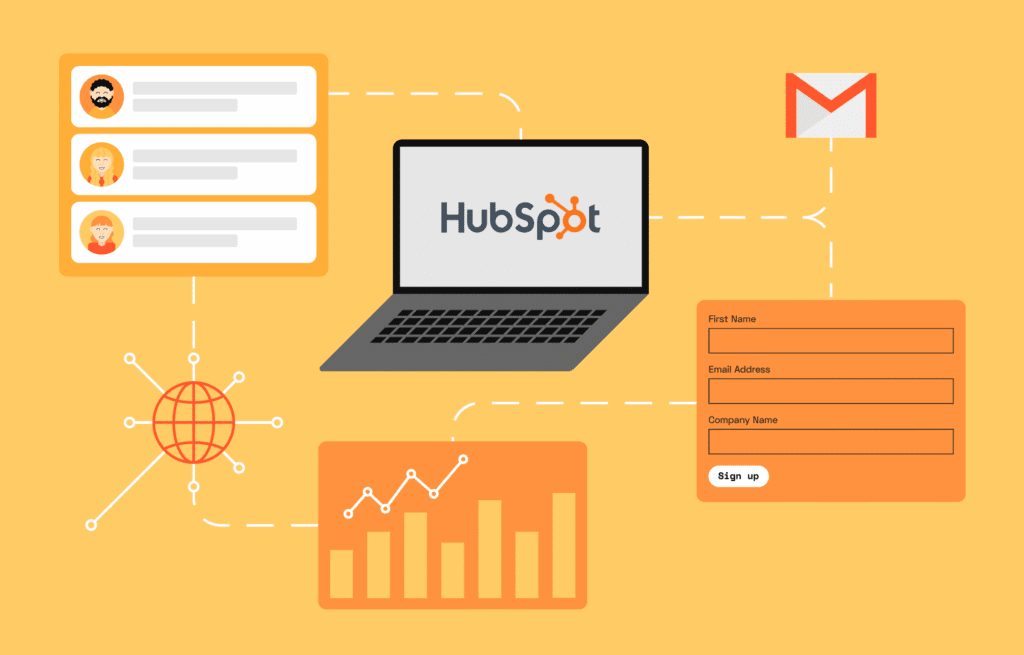
HubSpot has evolved into a complete “Customer Platform,” making it best for businesses of all sizes seeking a single source of truth for marketing, sales, and service. Its core strength is a powerful, user-friendly CRM that seamlessly integrates with best-in-class tools. It operates on a freemium pricing model, with robust free tools and scalable paid tiers (Starter, Professional, Enterprise). HubSpot’s philosophy is that every interaction a customer has with your business should be connected, and it achieves this by building all its tools on top of its central Smart CRM.
Key Features in Detail:
- Smart CRM: This is the heart of HubSpot. It doesn’t just store contact info; it automatically logs emails, calls, and meeting notes, and enriches contact profiles with data from over 1,700 integrations. It’s the foundation for all personalization.
- Marketing Hub™: This is where automation lives. You can build everything from simple email drip campaigns to complex, behavior-driven workflows using a visual editor. It includes tools for landing pages, forms, live chat, social media scheduling, and advanced SEO strategy.
- Sales Hub™: This suite is designed to make your sales team more efficient. It includes deal pipelines, meeting scheduling tools, and automated email sequences for follow-ups, helping reps focus on selling, not admin tasks.
The Automation Engine: HubSpot’s workflow builder is visual and intuitive. You can use “if/then” branching logic based on almost any data point in the CRM (e.g., “IF a contact visits the pricing page more than 3 times AND is a CEO, THEN notify the sales rep”).
Ideal User Profile: A growing business that understands the value of aligning its marketing, sales, and customer service teams. You’re ready to invest in a platform that will become the central operating system for your company’s growth.
b. Zoho Marketing Automation: The Value Powerhouse

Zoho Marketing Automation is best for small to medium-sized businesses (SMBs) who need enterprise-level features without the enterprise price tag. Its core strength is providing unbeatable value and deep integration within the massive Zoho software ecosystem. Operating on a competitive freemium pricing model, Zoho excels at mapping and understanding the entire customer journey. Zoho’s strategy is to offer a comprehensive suite of business applications that work together flawlessly.
Key Features in Detail:
- Customer Journey Builder: This is Zoho’s standout feature. It’s a highly visual tool that lets you map out every touchpoint a customer has, from their first website visit to becoming a loyal advocate. You can trigger actions based on their behavior within the journey.
- Multi-Channel Communication: Zoho natively supports email, SMS, and social media marketing, allowing you to create cohesive campaigns across all channels where your customers are active.
- Advanced Analytics: The platform comes with pre-built reports, revenue attribution models, and marketing planners, giving you clear insight into which campaigns are actually driving sales and providing a positive ROI.
The Automation Engine: Zoho’s automation is journey-based and powerful. You create flows that guide users based on triggers and responses, allowing for sophisticated lead nurturing and onboarding sequences. It integrates tightly with Zoho CRM for seamless sales handoffs.
Ideal User Profile: A budget-conscious SMB that wants a no-compromise automation solution. It’s an absolute must-see for any business already using other Zoho products like Zoho CRM or Zoho Books.
c. GoHighLevel: The Agency Operating System
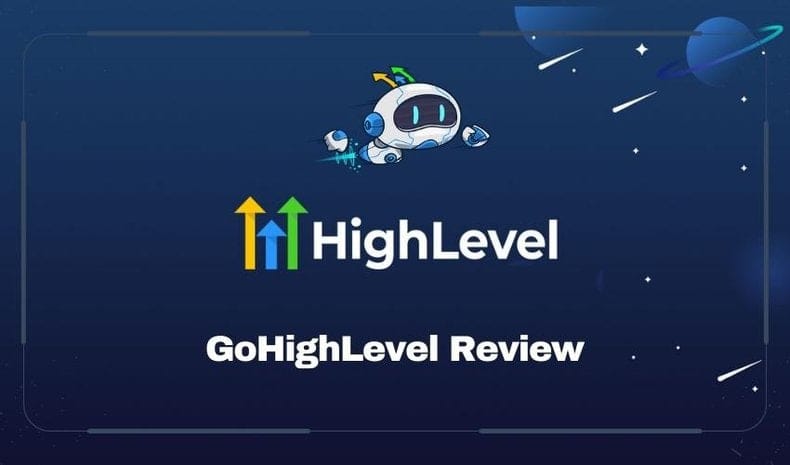
GoHighLevel is best for marketing agencies, consultants, and B2B service providers who manage multiple clients. Its core strength is its comprehensive, white-label platform that replaces a dozen other tools and can be resold to clients. It uses a subscription-based model with tiers designed for single businesses versus agencies with unlimited clients. GoHighLevel is not just another marketing tool; it’s a business-in-a-box designed to help agencies streamline operations and deliver better results.
Key Features in Detail:
- True White-Labeling & SaaS Mode: This is its killer feature. You can remove all GoHighLevel branding and present the entire platform to your clients as your own proprietary software. With “SaaS Mode,” you can even resell it to your clients, creating a new recurring revenue stream.
- Unified Communications Hub: It consolidates SMS, email, Facebook Messenger, Instagram DMs, and Google Business Chat into a single inbox for each client, ensuring no lead is ever missed.
- Complete Marketing & Sales Toolkit: GoHighLevel includes a robust funnel builder, a CRM with pipeline management, email and SMS automation, call tracking, and a built-in calendar for appointment booking.
The Automation Engine: The workflow builder is powerful and agency-centric. You can create campaigns for clients that automate lead follow-up, appointment reminders, review requests, and long-term nurturing.
Ideal User Profile: You run a marketing agency or are a marketing consultant. You’re tired of duct-taping multiple tools together for each client and want a single, professional solution to manage your entire business and client base.
d. Wishpond: The Creative Lead Generation Specialist
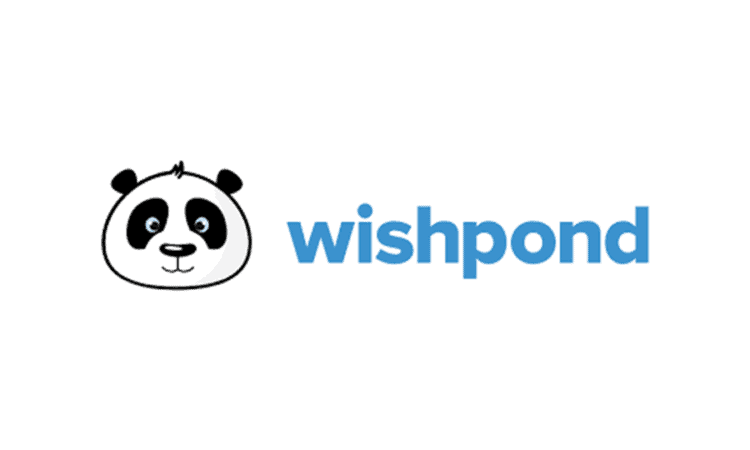
Wishpond is best for B2C businesses, e-commerce stores, and brands focused on rapid audience growth and engagement. Its core strength is helping users create high-engagement marketing campaigns like social contests, promotions, and quizzes. It offers a subscription-based pricing model, which includes plans with the option for a dedicated marketing team. While other platforms try to do everything, Wishpond focuses on doing one thing exceptionally well: creative lead generation.
Key Features in Detail:
- Social Promotions & Contests: This is Wishpond’s unique advantage. It provides templates for over 10 types of campaigns, including photo contests, hashtag contests, sweepstakes, and referral promotions, all designed to create viral buzz.
- High-Conversion Landing Pages: The landing page builder is simple but powerful, designed with a single goal in mind: conversion. It includes features like A/B testing and dynamic text replacement to maximize performance.
- Website Pop-ups and Forms: Wishpond offers a full suite of lead capture forms, including exit-intent pop-ups and slide-in forms, all designed to convert website visitors into subscribers.
The Automation Engine: Wishpond’s automation is straightforward and tied directly to its lead generation tools. You can create simple email drip campaigns to nurture the new leads you capture from your contests and forms.
Ideal User Profile: Your primary marketing goal is to rapidly grow your email list and social media following. You are in a B2C industry (like fashion, food, or consumer goods) where interactive campaigns perform well.
e. Systeme.io: The Ultimate Starter Kit for Creators
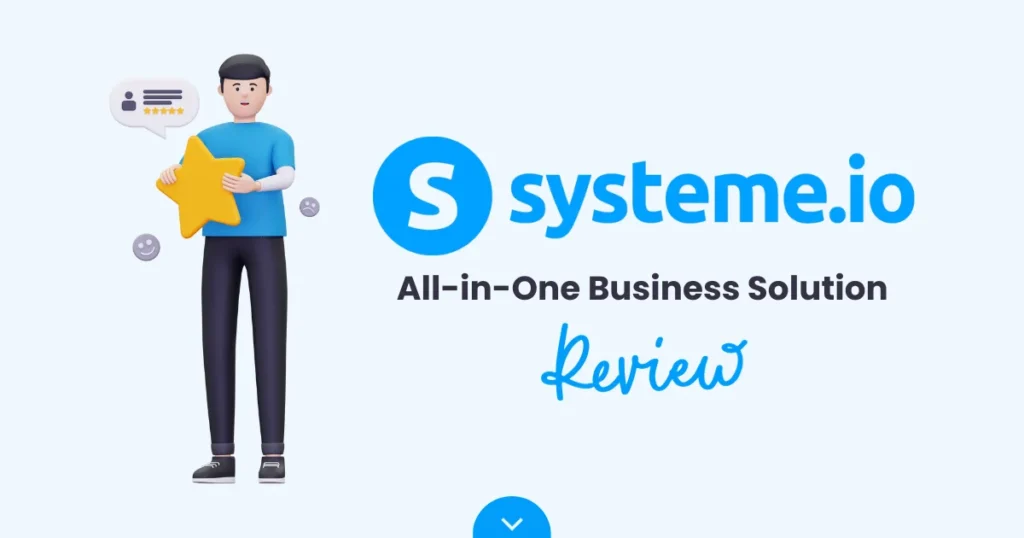
System.io is best for solopreneurs, course creators, and anyone starting an online business on a minimal budget. Its core strength is an incredibly generous “Free Forever” plan that provides all the core tools needed to launch a business. It operates on a freemium model, where the free plan is highly functional and paid plans are available for scaling. Systeme.io has disrupted the market by bundling all the essential tools into one platform that is accessible to everyone.
Key Features in Detail:
- Sales Funnel Builder: Its drag-and-drop funnel builder is incredibly easy to use, allowing you to create multi-step funnels to sell products, capture leads, or host webinars.
- All-in-One Business Tools: The free plan includes the ability to send unlimited emails, host an online course with unlimited students, build a blog, run your own affiliate program, and automate basic marketing tasks.
- Integrated E-commerce: You can sell digital and physical products directly from the platform, with built-in integrations for Stripe and PayPal to process payments.
The Automation Engine: The automation is based on simple rules and workflows. You can create triggers (e.g., “when a contact subscribes”) and actions (e.g., “add a tag” or “subscribe to an email campaign”), covering all the essential needs for a new business.
Ideal User Profile: You have an idea for an online course, an ebook, or a coaching service, but you have little to no budget to start. You need a simple, no-fuss platform that lets you build, market, and sell from a single dashboard.
f. ActiveCampaign: The Intelligent Automation Engine
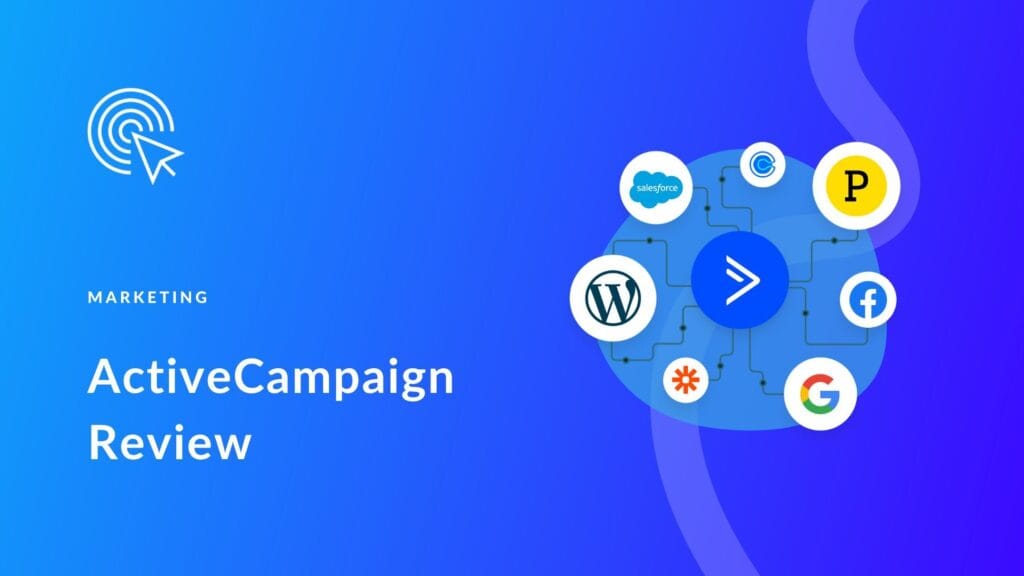
ActiveCampaign is best for sophisticated marketers, e-commerce businesses, and B2B companies that need powerful, granular automation. Its core strength lies in its best-in-class visual automation builder combined with a user-friendly CRM. It uses a subscription-based pricing model that scales with the number of contacts and feature tiers. The platform is built for “Customer Experience Automation” (CXA), focusing on creating truly one-to-one, personalized journeys for every contact.
Key Features in Detail:
- Visual Automation Builder: This is the gold standard. The builder is a visual flowchart where you can drag and drop triggers, actions, and conditional logic. You can split test paths, set goals, and build automations that are as simple or complex as you need.
- Deep Data & Site Tracking: ActiveCampaign can track a contact’s activity on your website, allowing you to trigger automations based on pages they visit, links they click, or videos they watch. This enables hyper-personalized follow-up.
- Integrated Sales CRM & Lead Scoring: The platform includes a sales CRM that is tightly integrated with the automation engine. You can automatically score leads based on their engagement, and once a lead hits a certain score, the CRM can automatically create a deal and notify a salesperson.
The Automation Engine: This is the core of ActiveCampaign. It goes beyond simple email sequences to allow for intelligent, cross-channel automation that adapts to a user’s real-time behavior, making it perfect for maximizing customer lifetime value.
Ideal User Profile: You are an experienced marketer who is frustrated by the limitations of simpler email tools. You understand concepts like segmentation and behavioral triggers and want a platform that gives you the power to execute sophisticated strategies.
Final Verdict: Which Platform is Right for You?
Choosing a platform is a major decision. Here is our final recommendation based on your primary need:
- If you want a scalable, all-in-one platform that will become the core of your business: Choose HubSpot.
- If you are a marketing agency that needs to streamline operations and add a new revenue stream: Choose GoHighLevel.
- If your top priority is best-in-class email automation and intelligent segmentation: Choose ActiveCampaign.
- If you are starting out with zero budget and need a free, all-in-one toolkit: Choose Systeme.io.
- If you need a powerful system on a budget and love the idea of a unified software suite: Choose Zoho Marketing Automation.
- If your main goal is to run creative contests and promotions to generate leads fast: Choose Wishpond.
The best way forward is to take action. Use the links above to explore the two platforms that resonate most with your goals, sign up for a free trial or demo, and discover firsthand which one feels right for you. Your future, more efficient business will thank you.

